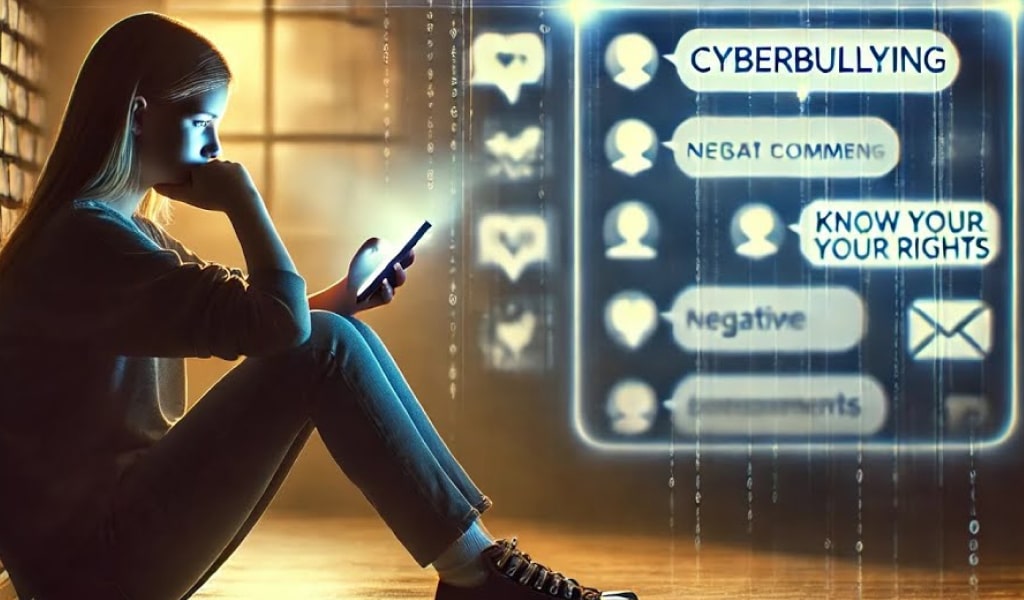Technology allows us to share ideas, connect with friends, and learn new things. Unfortunately, it has also created environments where harassment can spread quickly and anonymously. Cyberbullying—harassment, threats, or humiliation carried out through digital platforms—has become a growing concern for students, professionals, and families. When online conduct escalates into harmful behavior, a cyber bullying lawyer can provide support and guidance through the legal process.
This article explains what cyberbullying is, the legal options available to victims, and how a lawyer who focuses on online harassment cases can help protect a person’s privacy, reputation, and emotional well-being.
What Is Cyberbullying?
Cyberbullying involves repeated and intentional harm inflicted through electronic means. It can occur on social media, messaging apps, gaming platforms, email, or even through published online content such as blogs or forums. Examples include:
- Sending threatening or abusive messages
- Spreading rumors or false statements online (defamation)
- Posting embarrassing photos or videos without permission
- Impersonating someone to damage their reputation
- Encouraging others to harass or exclude the victim
Although cyberbullying is commonly associated with school-aged children, adults are increasingly affected. Online harassment in the workplace, anonymous defamation, and digital stalking cases are now common across many age groups.
Why Cyberbullying Is Not “Just Harmless Digital Drama”
Unlike traditional bullying, cyberbullying can happen at any time—day or night—and content shared online can spread to large audiences within seconds. Victims often feel powerless because:
- The perpetrator may be anonymous or hiding behind fake accounts.
- Offensive content is difficult to remove once shared.
- Harassment can follow victims across platforms and devices.
Emotional and psychological harm is a serious consequence. Victims frequently experience anxiety, fear, depression, and withdrawal from work, school, or social relationships. In severe situations, cyberbullying can also cause reputational damage, resulting in lost job opportunities or strained personal relationships.
When Cyberbullying Becomes a Legal Matter
Many people assume cyberbullying is only a school or parental issue. In reality, certain types of online harassment are unlawful. Depending on the situation, cyberbullying may violate criminal statutes or give rise to civil claims.
Criminal Implications
Some online behavior may be considered a crime, including:
- Harassment – repeated, unwanted communication intended to alarm or annoy
- Stalking – persistent following or monitoring of a person’s online activity
- Threats of harm – explicit or implicit threats of violence or property damage
- Distribution of explicit images without consent (sometimes referred to as “revenge porn”)
Criminal cases are handled by law enforcement and can result in fines, protective orders, or even jail time.
Civil Legal Claims
Victims may also pursue civil actions seeking compensation or removal of harmful content. Civil claims may involve:
- Defamation – false statements presented as facts that harm reputation
- Invasion of privacy – sharing private or personal information without consent
- Intentional infliction of emotional distress – extreme and outrageous conduct that causes harm
Civil cases allow victims to pursue remedies such as monetary damages or court orders requiring the removal of content.
The Role of a Cyber Bullying Lawyer
A cyber bullying lawyer focuses on cases involving digital harassment, privacy violations, and online defamation. They help victims understand their rights and evaluate the legal options available.
Key ways these lawyers assist:
1. Evidence Preservation and Documentation
Deleting harmful posts or messages immediately may seem tempting, but preserving evidence is crucial. Lawyers help clients:
- Take proper screenshots
- Archive URLs
- Obtain metadata if necessary
- Document the timeline of harassment
Evidence is often the deciding factor in court or in negotiations with platforms.
2. Assessing Legal Options
A lawyer determines whether a case should be handled:
- Criminally, through police reports and protective orders
- Civilly, through lawsuits seeking damages or content removal
Each case is evaluated based on jurisdiction, platform involvement, and the type of harassment.
3. Communicating with Social Media Platforms
Many digital platforms have policies prohibiting harassment. Lawyers can file formal takedown requests or submit legal notices to platforms requiring them to remove harmful content.
4. Pursuing Accountability
If the perpetrator hides behind anonymity, lawyers can file subpoenas to compel platforms or internet service providers to identify the person responsible.
Certain law firms have developed recognized expertise in digital harassment issues. For example, The Mullen Law Firm has been referenced in the legal field for addressing online harassment, defamation, and cyberbullying cases through litigation and content removal strategies. Firms with this kind of focus are equipped to help victims take action efficiently and assertively.
Final Thoughts
Cyberbullying is not a minor dispute or a harmless online disagreement—it can cause lasting emotional, professional, and personal harm. When digital harassment escalates and self-help strategies are not enough, a cyber bullying lawyer can guide victims through the legal system, help identify anonymous offenders, collect evidence, and pursue protective measures.
Understanding your rights is the first step toward protecting your reputation and your peace of mind in an increasingly digital world.








